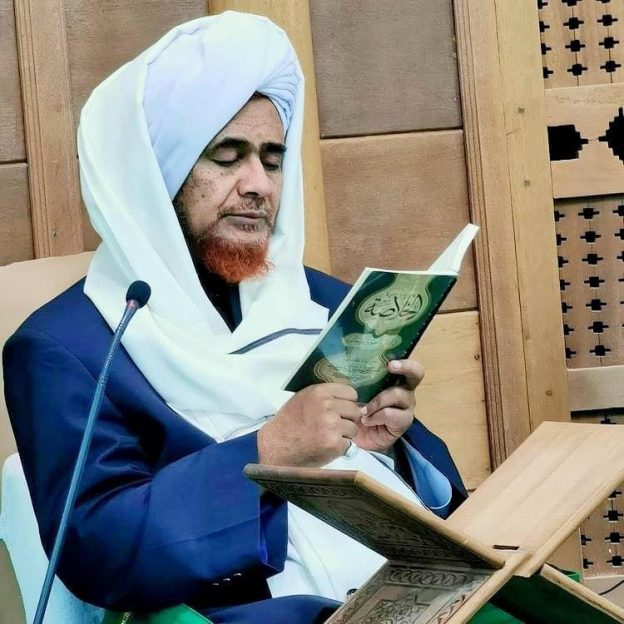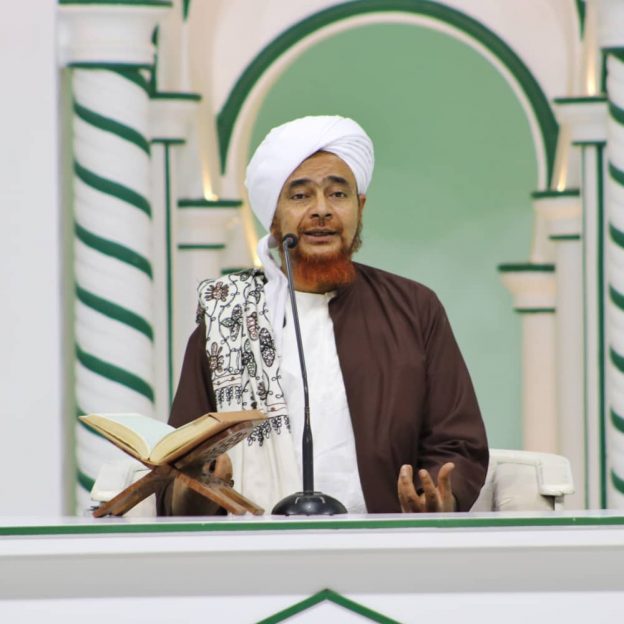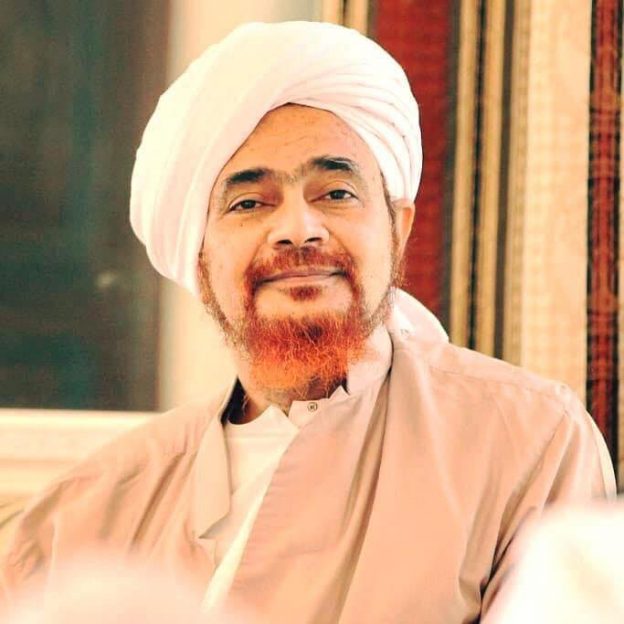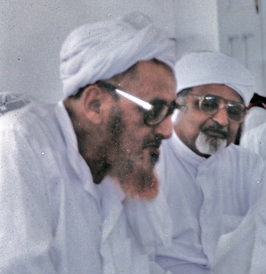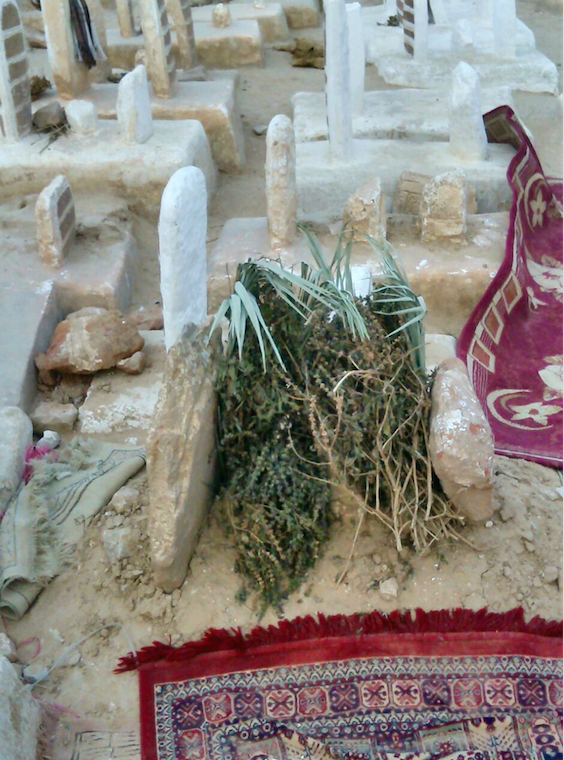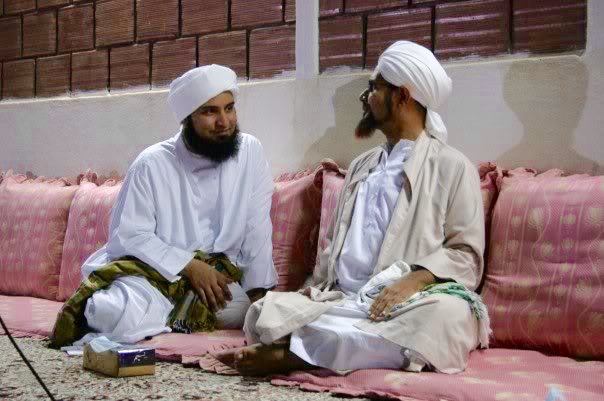The Hadrah Badriyyah is composed by Sayyidi Habib Umar and read on the night of Badr and also before fajr on the last Friday of every month in Dar al-Mustafa. Below is a recording of the Qasaid in the second half of the Hadrah. It includes poems by Shaykh Umar al-Mihdar, Imam al-Adani, Shaykh Abu Bakr bin Salim, Imam al-Haddad and Habib Abdullah bin Husayn bin Tahir. Continue reading The Hadrah Badriyyah
Month: June 2015
Tafsir of Short Surahs: Al-Inshirah
A summary of Habib Umar’s commentary on Surat al-Inshirah, Ramadan 1436.
Allah says: Have We not expanded your chest for you?
When We ordered Sayyiduna Musa to convey the message, he asked that his chest be expanded: My Lord expand my chest and make easy my affair. However, We gave it to you without you asking. Continue reading Tafsir of Short Surahs: Al-Inshirah
Feeding Non-Muslims in Ramadan During the Day
Answered by Sayyidi Habib Umar bin Hafiz (may Allah protect him and benefit us by him).
Is it permissible to feed non-Muslims in Ramadan during the day?
Non-Muslims are not required to fast, so it is permissible to feed them during the day in Ramadan. It is our duty to invite them to Islam. Once they have entered Islam they are required to fast. We should not, however, give them food if they will then eat it in front of Muslims who are fasting. In a country in which the majority of people are Muslim, non-Muslims should not eat and drink openly, for this may encourage Muslims to do the same. Continue reading Feeding Non-Muslims in Ramadan During the Day
Salawat with Allah’s Beautiful Names: Ya Ra’uf (The Most Kind)
Allah called his Beloved ﷺ by one of His names, al-Ra’uf – the Most Kind. Allah said to him that he is: “to the believers most kind and merciful” (9.128). In this prayer, Sayyidi Habib Umar bin Hafiz teaches us to ask for Allah’s kindness for ourselves and all believers through the means of the most kind Prophet ﷺ .
اللَّهُمَّ يا اللهُ يا رَؤُوفُ صَلِّ على عَبْدِكَ و حَبِيبِكَ سَيِّدِنا مُحَمَّدٍ النَّبِيِّ الرَّؤُوف و على آلِهِ و صَحْبِهِ و سَلِّمْ تَسْلِيماً و وَفِّرْ حَظَّنا مِنْ رَأْفَتِكَ و كُنْ بِنا و بِالمُؤْمِنينَ رَؤُوفاً رَحِيماً
O Allah, O Most Kind, bestow abundant prayers and peace upon Your slave and beloved, our Master Muhammad, the most kind Prophet and upon his Family and Companions, and bless us with a huge portion of Your kindness and be kind and merciful to us and all believers.
Salawat with Allah’s Beautiful Names: Ya ‘Afuww (The All-Pardoning)
The Messenger of Allah ﷺ taught us to call upon Allah by His name, al-‘Afuww – the All-Pardoning – on Laylat al-Qadr specifically but of course we are constantly in need of Allah’s pardon. In this prayer upon the Prophet ﷺ Sayyidi Habib Umar bin Hafiz teaches us to be among those who pardon others and thus receive Allah’s pardon. Allah says: “He who pardons and seeks reconciliation, his reward is with Allah (42:40).”
اللَّهُمَّ يا اللهُ يا عَفُوُّ صَلِّ على عَبْدِكَ و حَبِيبِكَ سَيِّدِنا مُحَمَّدٍ النَّبِيِّ العَفُوِّ و على آلِهِ و صَحْبِهِ و سَلِّمْ تَسْلِيماً و اعْفُ بِهِ عَنَّا و اجْعَلْنا مِمَّنْ عَفا و أَصْلَحَ فَجَعَلْتَ أَجْرَهُ عَلَيْكَ و سَعْيَهُ عِنْدَكَ مَشْكُوراً
O Allah, the All-Pardoning, bestow abundant prayers and peace upon Your servant and beloved, our Master Muhammad, the all-pardoning Prophet and upon his Family and Companions, and by him pardon us. Make us among those who pardon others and seek reconciliation – those whose reward is due from You and those whose efforts are recognised by You.
Ramadan Poetry and Supplications by Habib Muhammad al-Haddar
Habib Muhammad al-Haddar’s book “Nafahat Ramadaniyyah” contains many duas and qasaid that are recited in the gatherings after Tarawih prayers.
Click here to download
Hababah Zahra: Beginnings and Endings
Sayyidi Habib Umar bin Hafiz (may Allah preserve him and benefit us by him) talks about his mother, Hababah Zahra’s early years, her funeral and her grave. He also describes his father, Habib Muhammad bin Salim bin Hafiz, may Allah have mercy upon them both.
He said of her: “She completely absorbed the methodology of Hadramawt and was a model of someone who followed this spiritual path. She possessed the attributes of human perfection and showed people how to fulfil their role in life.” Continue reading Hababah Zahra: Beginnings and Endings
Increasing our Love and Yearning for the Prophet ﷺ through Fasting
Answered by Sayyidi Habib Umar bin Hafiz (may Allah protect him and benefit us by him)
How can we increase in our love and yearning for the Prophet ﷺ through fasting?
We do this by:
- Being aware that we are following him in our fasting
- Applying the sunnahs pertaining to fasting which he taught us
- Being aware that this act of worship and the great reward that it entails came to us by means of him. Because of him, Allah concealed for us in this act of worship a reward which only He knows. Allah says in the hadith Qudsi that every action has a fixed reward – “except for fasting – it is for Me and I reward accordingly”
- Reading the supplications which he taught us and bestowing prayers and peace upon him throughout our fast.
Lessons From the Life of Hababah Zahra
Sayyidi Habib Ali al-Jifri (may Allah preserve him and benefit us by him) derives lessons from the life of Hababah Zahra bint Hafiz al-Haddar (may Allah have mercy upon her).
Every soul will taste death, and surely you will only be paid your reward in full on the Day of Resurrection. Whoever is taken away from the Fire and admitted to Paradise, he indeed is successful. What is the life of this world except the enjoyment of delusion? (3:185) Continue reading Lessons From the Life of Hababah Zahra
Insights into Purification: Not Wasting Water
Water is a blessing from Allah. If you were to be deprived of it, you would die of thirst.
Allah says: Allah does not love the wasteful (6:141)
and the wasteful are the Devil’s brothers (17:27)
The Prophet ﷺ once passed by Sayyiduna Sa’d and rebuked him for wasting water while performing wudu. He replied: “O Messenger of Allah, is there wastage in wudu?” Continue reading Insights into Purification: Not Wasting Water

